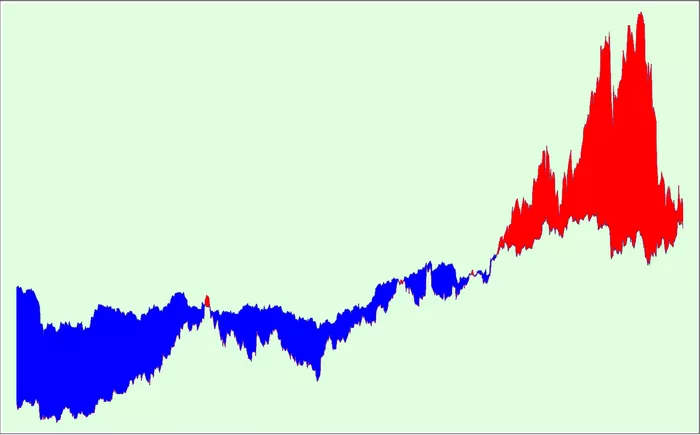Investors are not pricing in a U.S. recession just yet, according to a recent Deutsche Bank analysis comparing recent activity in stock, bond and oil markets to past recessions.
If a recession does occur, the resilience of markets so far leaves room for asset prices to fall further.
Stocks have been boosted by signs that the Trump administration is considering easing its trade war with China.
Analysts say the risk of a U.S. recession has increased this year, but investors are hopeful that the country can weather President Donald Trump’s tariff storm.
Stock, bond and oil markets have all been hit hard by tariff uncertainty, but they are still in better shape than during recent recessions, said Henry Allen, an analyst at Deutsche Bank. “So the market clearly does not see a recession as inevitable, especially if tariffs do not take effect after the latest 90-day extension,” Allen wrote in a note Wednesday.
Stocks sold off after Trump’s “Liberation Day” tariff announcement, with the S&P 500 falling as much as 18.9%. That was one of the sharpest corrections in decades, but smaller than the declines that preceded the last five U.S. recessions.
Credit spreads have widened, but like stocks, not as much as they did during recent recessions. As of Wednesday morning, high-yield bond spreads were at 397 basis points (bps), well below the 1,100 bps seen during the pandemic and 1,971 bps during the global financial crisis. Allen noted that spreads haven’t even reached levels that have stressed markets during non-recessionary periods, such as 583 bps in 2022 and 839 bps in 2016.
Likewise, oil prices haven’t fallen as much as they have in recent recessions. Since “Liberation Day” (April 2), Brent crude futures contracts have fallen about 13%, a significant drop, but nowhere near the two-thirds declines seen during the pandemic and financial crisis. Allen said the relatively modest decline “suggests that investors are not currently expecting a significant slowdown in global economic growth.”
Unfortunately for investors, the market’s current resilience could work against them. “Because the market has not fully priced in a recession, it poses a huge downside risk if one does occur,” Allen said.
Improved U.S.-China relations could reduce recession risk. Trump said Tuesday that he expects China to eventually impose tariffs far lower than the current 145%, which seemed reasonable on Wednesday. The Wall Street Journal reported Wednesday that officials are considering reducing tariffs on Chinese imports to between 50% and 65%.
Stocks have risen on hopes of easing tensions, but some economists warn that even lower tariffs increase the risk of a slowdown. Trump has also suddenly changed plans in the past, leaving economists unsure whether the warming relationship between the two countries can last.
“Hard data in the coming days will be critical,” Allen said. “Investors have been reluctant to fully price in a recession because we don’t have enough evidence that a recession is likely. But if that changes and we start to see contractionary data (e.g., negative nonfarm payrolls), that will lead to a reassessment in the market and could pave the way for another round of selling.”
































